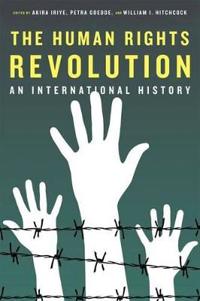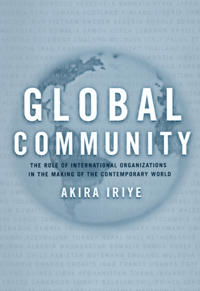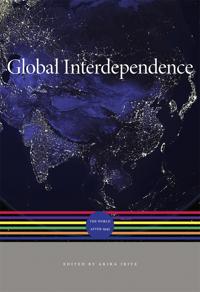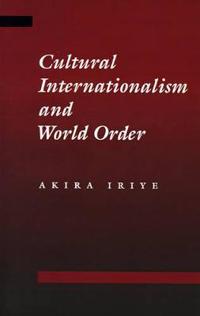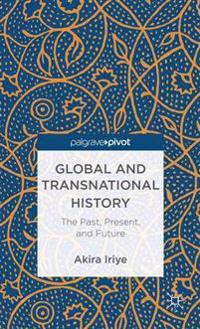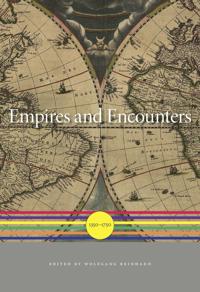The Human Rights Revolution (Inbunden)
avAkira Iriye
ISBN: 9780195333138 - UTGIVEN: 2012-02The third volume for the OUP/National History Center series, Reinterpreting History, this book offers a critical look at the political movement encompassed by human rights, a term rarely used before the 1940s. An agenda for human rights, with particular attention to international justice in the wak[...]
Global History Reader (Inbunden)
avAkira Iriye, Bruce Mazlish
ISBN: 9780415314596 - UTGIVEN: 200411This ground-breaking work brings together an important collection of essays from an international range of contributors to set globalization in its historical context. Through these thematically focused essays, the history of the world is examined in key themes that transcend national boundaries suc[...]
Global Community (Pocket)
avAkira Iriye
ISBN: 9780520231283 - UTGIVEN: 200409The 'global community' is a term we take for granted today. But how did the global community, both as an idea and as a reality, originate and develop over time? This book examines this concept by looking at the emergence, growth, and activities of international organizations - both governmental and [...]
The New Cambridge History Of American Foreign Relations: Volume 3, The Globalizing Of America, 1913-1945 (Inbunden)
avAkira Iriye
ISBN: 9780521763288 - UTGIVEN: 2013-04-29This revised third volume describes how the United States became a global power - economically, culturally, and militarily - during the period from 1913 to 1945, from the inception of Woodrow Wilson's presidency to the end of the Second World War.[...]
Global Interdependence (Inbunden)
avAkira Iriye
ISBN: 9780674045729 - UTGIVEN: 2014-01Provides an account of world history from the end of WWII onwards, an era when transnational communities challenged the long domination of the nation-state. In this title, leading scholars elucidate the political, economic, cultural, and environmental forces that have shaped the planet in the past s[...]
Cultural Internationalism and World Order (Häftad)
avAkira Iriye
ISBN: 9780801866531 - UTGIVEN: 200010As the nineteenth century became the twentieth and the dangers of rampant nationalism became more evident, people throughout the world embraced the idea that a new spirit of internationalism might be fostered by better communication and understanding among notions. Cultural internationalism came int[...]
The New Cambridge History of American Foreign Relations (Inbunden)
avWilliam Earl Weeks, Walter Lafeber, Akira Iriye
ISBN: 9781107031838 - UTGIVEN: 2013-06-28The New Cambridge History of American Foreign Relations is the definitive source for the topic, from the colonial period to Barack Obama's administration.[...]
Global and Transnational History (Inbunden)
avAkira Iriye
ISBN: 9781137299826 - UTGIVEN: 201210There has been a sea change in the way history has been taught and written about during the last twenty years or so, apparent in the frequency with which the words 'global' and 'transnational' have come to be used in the titles of books and articles. Historians are much more interested today than in[...]
Empires and Encounters 1350-1750 (Inbunden)
avWolfgang (EDT) Reinhard, Akira (EDT) Iriye, Jürgen (EDT) Osterhammel
ISBN: 9780674047198 - UTGIVEN: 2015-06Between 1350 and 1750 a time of empires, exploration, and exposure to radically different lands and cultures the world reached a tipping point of global connectedness. In this volume of the acclaimed History of the World series, noted international scholars examine five critical geographical areas d[...]

